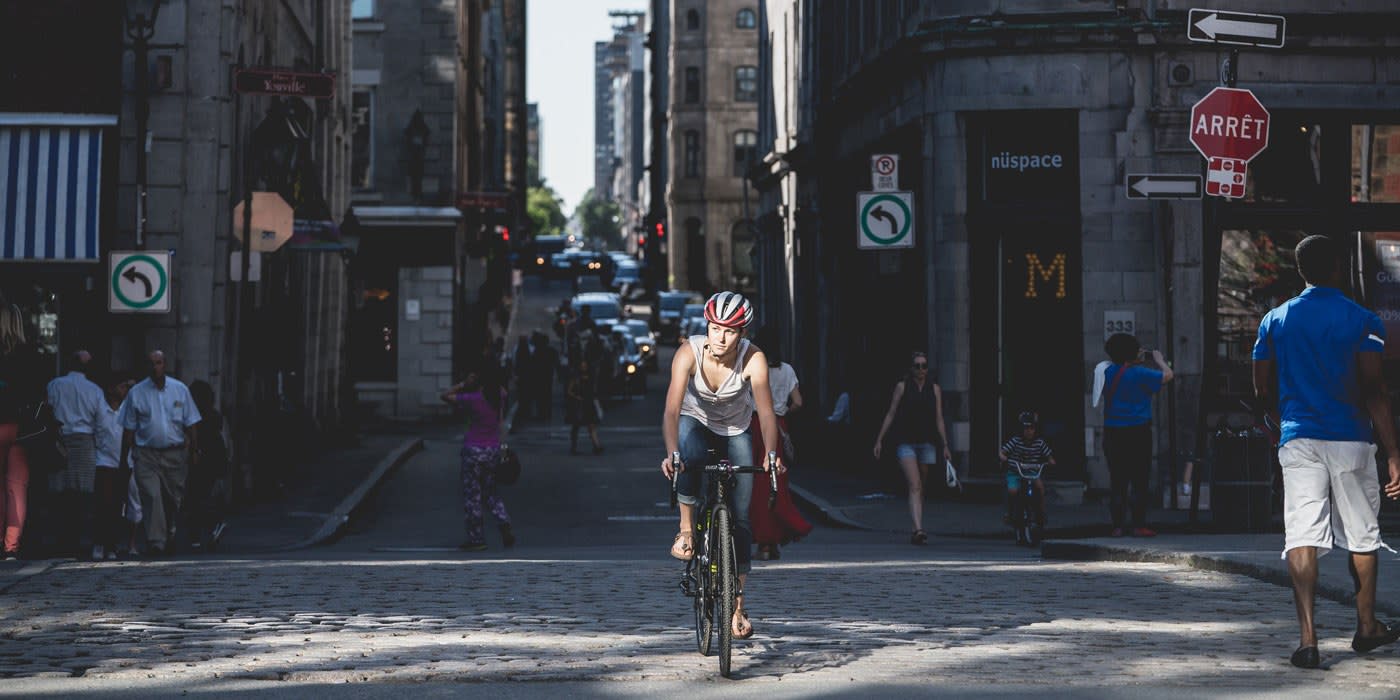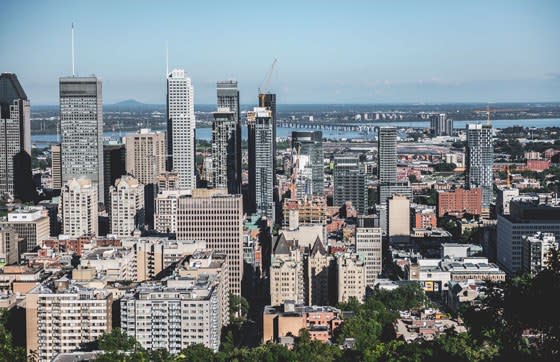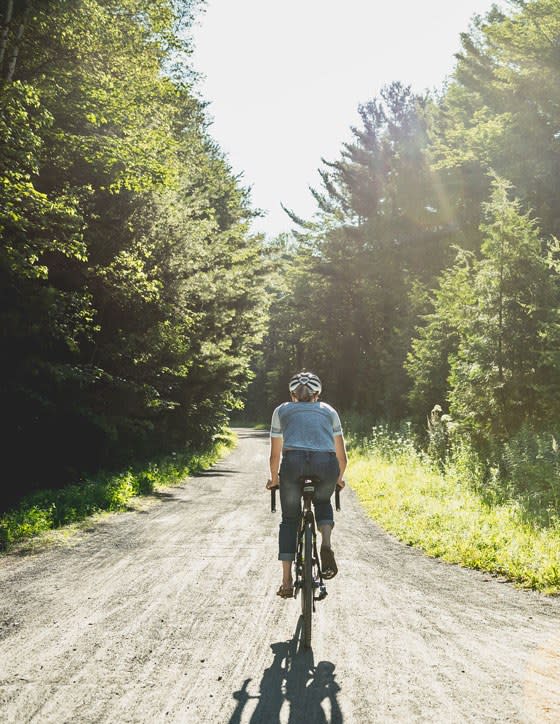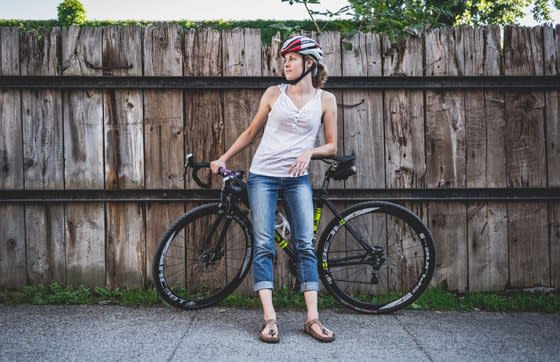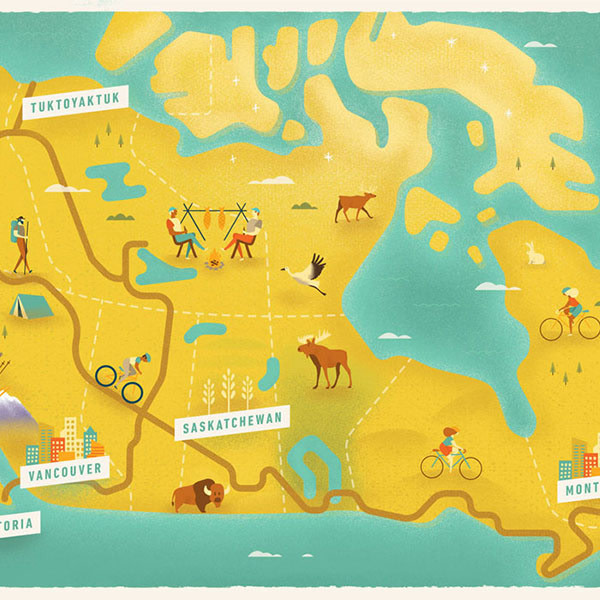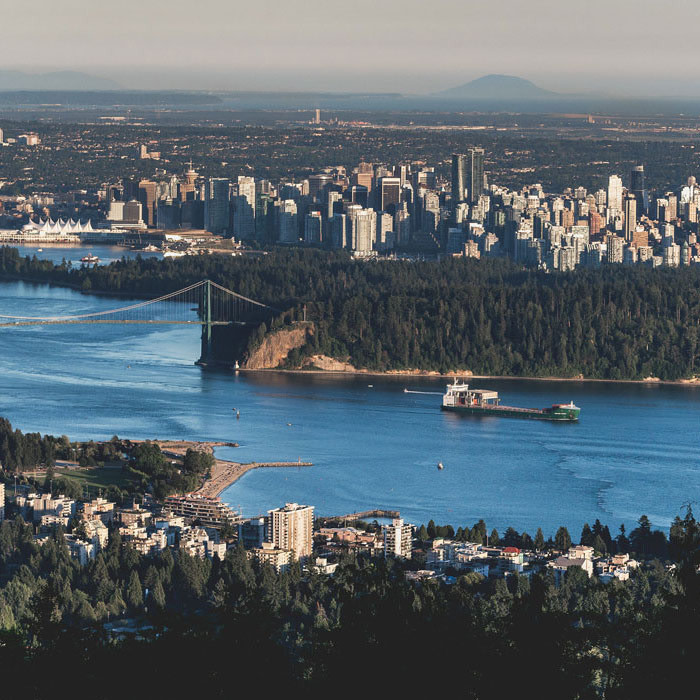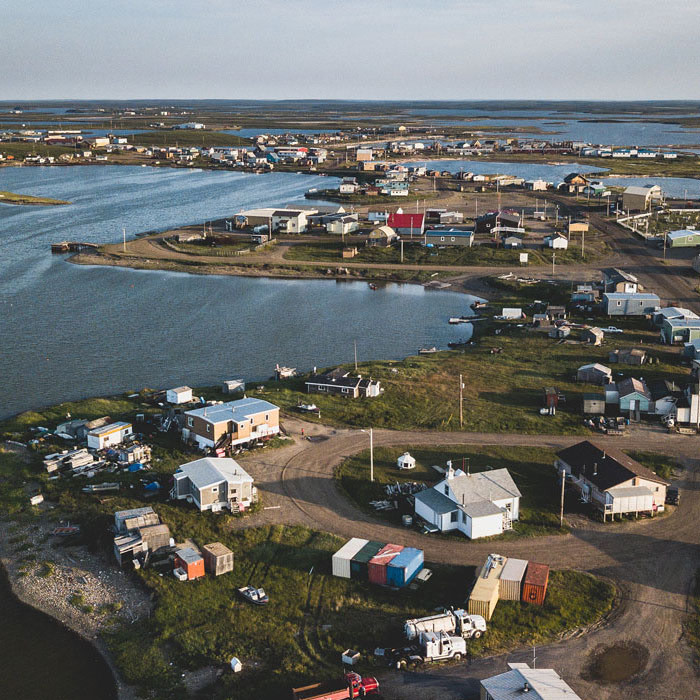We at Clif love the way The Great Trail promotes outdoor adventures and helps protect the places we play. So, in celebration of Canada’s 150th anniversary in 2017, we funded a 150-kilometre (93.2-mile) stretch of The Great Trail. We’re looking forward to an ongoing relationship, raising awareness of this epic adventure opportunity, helping bring the trail to life, and inspiring people to get out there—whether it’s on a 10-day wilderness trek or a jog on a downtown footpath.

Maghalie Rochette literally lives on The Great Trail. It runs right past her back door in Montreal’s North Shore suburb of Saint-Jérôme, the southernmost stretch of a 146-mile (235-km) 1890s rail trail called the P’tit Train du Nord–the Little Train of the North–that is now a gravel pathway.
“I’m on it every day,” says Maghalie, a professional cyclo-cross racer who won her first national title at the 2016 Canadian National Cyclo-Cross Championships. “I do my daily intervals and training on the trail, which is my warm-up route before I sneak off-piste onto a cool network of mountain bike trails,” she says. “And, of course, I cycle The Great Trail to my local bakery to buy fresh bread.”
Winding gently through quaint villages with tall silver church steeples and old rail stations converted to cafés in the Laurentian Mountains, the P’tit Train is a delightful rural route passing streams, lakes, and forests that paint the landscape gold and red in autumn. It’s just one of many heritage waypoints on The Great Trail’s urban arteries that run through the historic heart of Montreal, set in Quebec, a predominantly French-speaking province.
Canada’s second biggest metropolis is charming and European-flavored. It proudly celebrated its 375th anniversary in 2017, and remains an alluring blend of centuries-old architecture, hip neighborhoods with a fun-fueled joie de vivre, and vibrant, legendary nightlife—especially in summer when jazz spills onto the hot city sidewalks.
Most of the The Great Trail’s urban sections are also part of the Route Verte–the Green Route–3,291 miles (5,300 kilometers) of biking paths that knit together the far corners of this vast province. It’s North America’s largest cycling network (Montreal locals love to cycle).
In the city, the trails are used not only for exercise, but also as a part of Montrealers’ year-round daily routines for shopping and commuting from leafy neighborhoods to the downtown core, even during Quebec’s brutal winters when some locals swap wheels for cross-country skis.
Strolling through the city’s birthplace, Old Montreal, the cobblestone streets and café-lined laneways are filled with the aroma of fresh croissants and café au lait. The Great Trail continues here, rambling alongside the historic Old Port and onto the Saint Lawrence River’s 9-mile (14.5-km) Lachine Canal that bypassed treacherous rapids to open access to the Great Lakes in 1825. These days it’s a much-loved National Historic Site, and its prime cycling banks a linear, grassy parkland with trees, picnic tables, and vintage industrial warehouses-turned-condos.
At the canal’s upstream terminus, waterfront Lachine is where fur traders once launched their voyageur canoes on epic voyages, using rivers and lakes to reach remote corners of Canada on routes that can now be retraced via The Great Trail. The traders left behind French-speaking communities across Canada that thrive today.
From the island of Montreal, the path hopscotches across two islets in the Saint Lawrence River, the sites of Expo ’67 that first brought international attention to this exotic city in Canada’s heart. On tiny Île Sainte-Hélène, a short, very smooth stretch of The Great Trail piggybacks on the Gilles Villeneuve Formula One racing circuit before heading to the city’s South Shore on a riverside route following the Saint Lawrence Seaway.
Montreal’s suburbs peter out quickly, morphing into peaceful rural farmland with small towns and friendly villages that makes up much of the province.
“Above all, The Great Trail is welcoming,” says Maghalie Rochette. “It encourages kids to start biking in a safe setting and gives budding racers a place to practice. And it’s an inspiration… it offers a dream to take off on a great adventure to explore Canada’s diverse nature and cultures. My dream is two months on the trail!”

